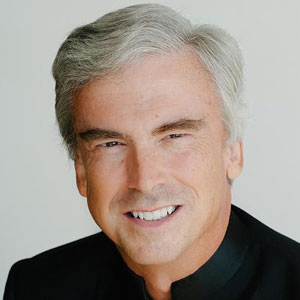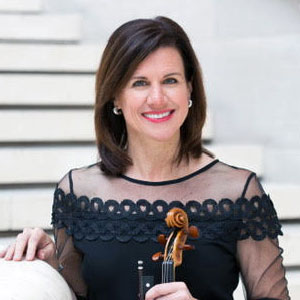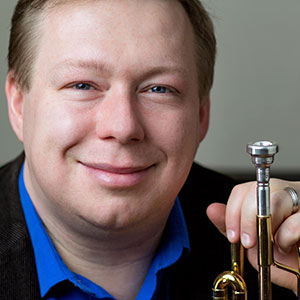THE MUSIC OF JOHN WILLIAMS
Tuesday, October 22, 2024, 7:30pm
Meyerson Symphony Center + Livestream
Jerry Junkin, Artistic Director & Conductor

In his 31st season as Artistic Director and Conductor of the Dallas Winds, Jerry Junkin is recognized as one of the world’s most highly regarded wind conductors. He has served as Music Director and Conductor of the Hong Kong Wind Philharmonia since 2003, and Principal Guest Conductor of the Senzoku Gakuen College of Music Wind Symphony in Tokyo since 2007. Additionally, 2024-2025 marks his 36th year on the faculty of The University of Texas at Austin, where he holds the Vincent R. and Jane D. DiNino Chair for the Director of Bands. There, he also holds the title of University Distinguished Teaching Professor. Previously, he served on the faculties of both the University of Michigan and the University of South Florida. In addition to his responsibilities as Professor of Music and Conductor of the Texas Wind Ensemble, he serves as Head of the Division of Conducting and Ensembles and teaches courses in conducting and wind band literature. He is a recipient of multiple teaching awards, and students of Mr. Junkin hold major positions throughout the world.
Mr. Junkin is an enthusiastic advocate of public school music education, having conducted All-State bands and festivals in forty-eight states and on five continents. He spends his summers in residence at the Interlochen Arts Camp in Michigan, as well as appearing at major music festivals throughout the world.
Mr. Junkin has served as President of the Big XII Band Director’s Association and is a member of the Board of Directors of The John Philip Sousa Foundation, is Past-President of the American Bandmasters Association, and is Past President of the College Band Directors National Association. Regularly making guest appearances with ensembles such as the Tokyo Kosei Wind Orchestra and the Taipei Symphonic Winds, he continues to conduct throughout the United States in addition to multiple appearances in Japan, China, and Europe. In 2005, he was presented the Grainger Medallion by the International Percy Grainger Society in recognition of his championing of Grainger’s works, and he has received numerous career awards from Kappa Kappa Psi, Phi Beta Mu, and the Midwest Clinic, among others. Mr. Junkin is a Yamaha Master Educator.
Maria Schleuning, violin

Violinist Maria Schleuning has been a member of the Voices of Change Modern Music Ensemble since 1996 and was Artistic Director from 2009-2024. An advocate of new music, she has worked with many of the leading composers of our day, including the legendary Witold Lutoslawski, George Crumb, Aaron Jay Kernis, John Corigliano, Sam Adler, Sebastian Currier, Bright Sheng, Augusta Read Thomas, and Pierre Jalbert. She has premiered many new works; among them, the world premiere of Dream Catcher (2009), a solo violin work written for her as a gift from Augusta Read Thomas, and Partners (2018), a double concerto by David Amram, written for her and cellist Jolyon Pegis.
An active chamber musician, Ms. Schleuning has performed in venues such as New York’s Alice Tully Hall, Weill Hall, Avery Fisher Hall, and the Museum of Modern Art, as well as at numerous festivals throughout the United States and Europe. From 1993-2012 she was a faculty member and performer at the Bowdoin International Music Festival in Maine, and has served in the same capacity at Idyllwild Arts in CA and the Bennington Music Festival in VT. She has recorded with Continuum modern music ensemble in NYC, as well as in Dallas with Grammy-nominated Voices of Change and the Walden Piano Quartet. In addition, she has served as Principal Second Violin of the New York Women’s Ensemble, and currently is Principal Second Violin of Classical Tahoe, where she was a guest concertmaster in 2014.
A member of the Dallas Symphony since 1994, she has been a featured soloist on multiple occasions, most recently in 2023. Other solo highlights include appearances with the Oregon Symphony, Seattle Symphony, West Virginia Symphony, Abilene Symphony, Laredo Symphony, Bozeman Symphony and with the Greater Dallas Youth Orchestra on a tour of Eastern Europe, including concerts at the Gewandhaus in Leipzig and the Rudolfinum in Prague. In 2015 she returned as guest soloist on their China tour. She studied with Josef Gingold at Indiana University, where she was awarded a Performer’s certificate; with Yfrah Neaman at the Guildhall School in London as a recipient of a grant by the Myra Hess Foundation; and with Joel Smirnoff at the Julliard School, where she received her Master’s Degree.
Brian Shaw, trumpet

“Brian Shaw epitomizes the versatile twenty-first century trumpeter.” – Elisa Koehler, Fanfares and Finesse
A native of Southern Illinois, Brian Shaw is Co-Principal Trumpet of the Dallas Winds and Principal Trumpet of Santa Fe Pro Musica (NM), Spire Baroque Orchestra (Kansas City), and is a core member of the Pacific Northwest Ballet Orchestra. He is noted for his versatility, performing and recording regularly as a classical and jazz trumpeter on modern instruments and period instruments as well. He has released three recordings as a soloist, including Virtuoso Concertos for Clarino (2008) on Baroque trumpet, redshift (2014) with the Dallas Winds, and Sonatas and Fantasies (2021) with pianist Jan Grimes. A fourth album with pianist Willis Delony will be released in 2025. Brian is very active as a jazz arranger and has just co-written a biography of jazz legend Kenny Wheeler, to be published by Equinox Books (UK) in March 2025. As a teacher, Dr. Shaw continues as guest instructor of Baroque trumpet at the Eastman School of Music and leads a robust private studio after leaving his position as Professor of Trumpet and Jazz Studies at Louisiana State University, which he held for 15 years. He is a graduate of Eastern Illinois University (B.Mus), Eastman (M.Mus), and UT Austin (D.M.A.). Brian lives near Seattle with his wife, Lana, their sons, Thomas and Elliot, and their dog, Ernie.
Fanfare
7:15pm, Meyerson lobby
Wings of Victory
Benjamin Miles
Tyler Junior College Brass & Percussion
Jeremy Strickland, conductor
Program
Theme from Jurassic Park
John Williams, tr. Paul Lavender
Selections from Harry Potter
John Williams, tr. Paul Lavender
1. Fawkes the Phoenix
2. Harry’s Wondrous World
Theme from Schindler’s List
John Williams, arr. Calvin Custer
Maria Schleuning, violin
Hooray for Hollywood
arr. John Williams, tr. Jay Bocook
— INTERMISSION —
Selections from Indiana Jones
John Williams, tr. Paul Lavender
1. Scherzo for Motorcycle and Band
2. Helena’s Theme
3. Raider’s March
With Malice Towards None from Lincoln
John Williams, tr. Paul Lavender
Brian Shaw, trumpet
Selections from Star Wars
John Williams, tr. Paul Lavender
1. The Asteroid Field
2. Throne Room and Finale
Dallas Winds Personnel
PICCOLO
Margaret Shin Fischer
FLUTE
Abby Easterling, principal
Megan Pan
OBOE
Nathan Ingrim, principal
Abigail Hawthorne
ENGLISH HORN
Aryn Mitchell
E♭ CLARINET
Brendan Fairleigh
B♭ CLARINET
Deborah Fabian, concertmaster
Sharon Deuby, associate principal
Mary Druhan
Ricky Reeves
Evan Schnurr
Jeanie Murrow
Chastine Hofmeister
Andre Canabou
Mark Arritola
Brendan Fairleigh
BASS CLARINET
Mickey Owens
CONTRA CLARINET
Robin Owens
BASSOON
Marty Spake, principal
Spencer Wilson
CONTRABASSOON
Leslie Massenburg
ALTO SAXOPHONE
Donald Fabian, principal
David Lovrien
TENOR SAXOPHONE
Chris Beaty
BARITONE SAXOPHONE
John Sweeden
HORN
Joseph Charlton, principal
Eric Hessel
Derek Wright
Timothy Stevens
Benjamin Ruiz
TRUMPET
Tim Andersen, co-principal
Brian Shaw, co-principal
James Sims
Richard Adams
Daniel Kelly
Shaun Abraham
Jared Broussard
TROMBONE
Jacob Muzquiz, principal
Simon Willats
Tony Bianchetta
BASS TROMBONE
Barney McCollum
EUPHONIUM
Grant Jameson, principal
Donald Bruce
TUBA
Jason Wallace, principal
Nick Beltchev
STRING BASS
Andrew Goins
PIANO
Cameron Hofmann
HARP
Alison Read
TIMPANI
Jacob Hord, principal
PERCUSSION
Roland Muzquiz, principal
Mike McNicholas
Drew Lang
Joe Ferraro
Steve McDonald
Staff
Michelle E. Hall – Executive Director
Ramon Muzquiz – Concert Operations & Stage Manager
Grace Lovrien – Executive Assistant
Todd Toney – Director of Education
Lenore Ladwig Scott – Bookkeeper
Tim Andersen – Personnel Manager
Chrystal Stevens – Music Librarian
Jeremy Kondrat – Associate Conductor
Livestream
Lydia Amstutz – Titles, Camera
Savannah Ekrut – Switch
Adam Ellard – Director
Ciara Negley – Camera
Todd Toney – Score Reader
Cameron Conyer – Technical Engineer
Christopher Cook – Remote Cameras
Scott Probst – Recording Engineer
David Lovrien – Title Design
Program Notes
Born February 8, 1932 in Queens, New York
One of the most successful film composers in history, John Williams holds the record for the most Academy Award nominations for a living person, having been honored with about 50. Four of these resulted in Oscars for Best Original Score. Williams earned an additional Academy Award for his adaptation of Jerry Bock’s music for the 1971 film Fiddler on the Roof.
In the late fifties, Williams worked as a pianist and arranger for many television shows and films. Arranging led to composition, including scores for Gilligan’s Island and Lost in Space. Over the next four decades he has scored some of Hollywood’s most high-profile movies, including Jaws, Star Wars, E.T., Jurassic Park, Schindler’s List, Saving Private Ryan, Lincoln, and three Harry Potter films.
Stephen Spielberg’s Jurassic Park opened on June 11, 1993. This tale of genetic engineering gone wrong is a thriller in which dinosaurs are brought back to life after millions of years. Although the film cost about $63 million to make, Williams’ score helped guarantee the film’s appeal.
John Williams scored the first three Harry Potter films. His scores effortlessly conjure worlds that do not exist in real life. Williams’ themes expertly depict Rowling’s multi-dimensional characters and scenes. The orchestrators added brilliant touches, such as the use of the beautifully mysterious celesta to represent Harry’s pet owl, Hedwig. The result is a score that expertly depicts Harry’s situation, but more importantly represents the magical world of childhood mysteries that resides in everyone’s memory and imagination.
Spielberg’s Schindler’s List tells the harrowing story of the Holocaust. Businessman Oskar Schindler used his status to rescue over 1200 Polish Jews from concentration camps. Williams’ theme is full of pathos, but it also carries a sense of cautious hope. The disarming simplicity of the theme makes it a heartfelt reminder of humanitarian gestures in troubled times.
Williams’ arrangement of Hooray for Hollywood is a tour-de-force of musical techniques. The song is treated almost as a series of variations that keeps each statement of the melody sounding fresh. Listen for the verse of the song in the middle of the piece as well as a short statement of That’s Entertainment when you least expect it.
The saga of Indiana Jones started with Raiders of the Lost Ark and continued over some 40 years with adventures that always had audiences on the edge of their seats. The cue known as “Scherzo for Motorcycle” is taken from the film Indiana Jones and the Last Crusade. “Helena’s Theme” is from Indiana Jones and the Dial of Destiny and is a portrait of the character Helena Shaw. The harmonic language is reminiscent of Mahler’s adagio movements.
Lincoln starring Daniel Day-Lewis tells the story of our 16th president and his struggles during the Civil War. “With Malice Toward None,” featuring a poignant trumpet solo, is a quiet reflection on the magnanimous gesture of forgiveness to the Confederate people in the wake of the war. The title comes from Lincoln’s Second Inaugural Address.
Perhaps Williams’ most famous score is from the Star Wars franchise. “The Asteroid Field” from The Empire Strikes Back combines his “Imperial March” with other themes intertwined in a brilliant development that reflects the dangers inherent in the scene.
©2024 Orpheus Music Prose & Craig Doolin
